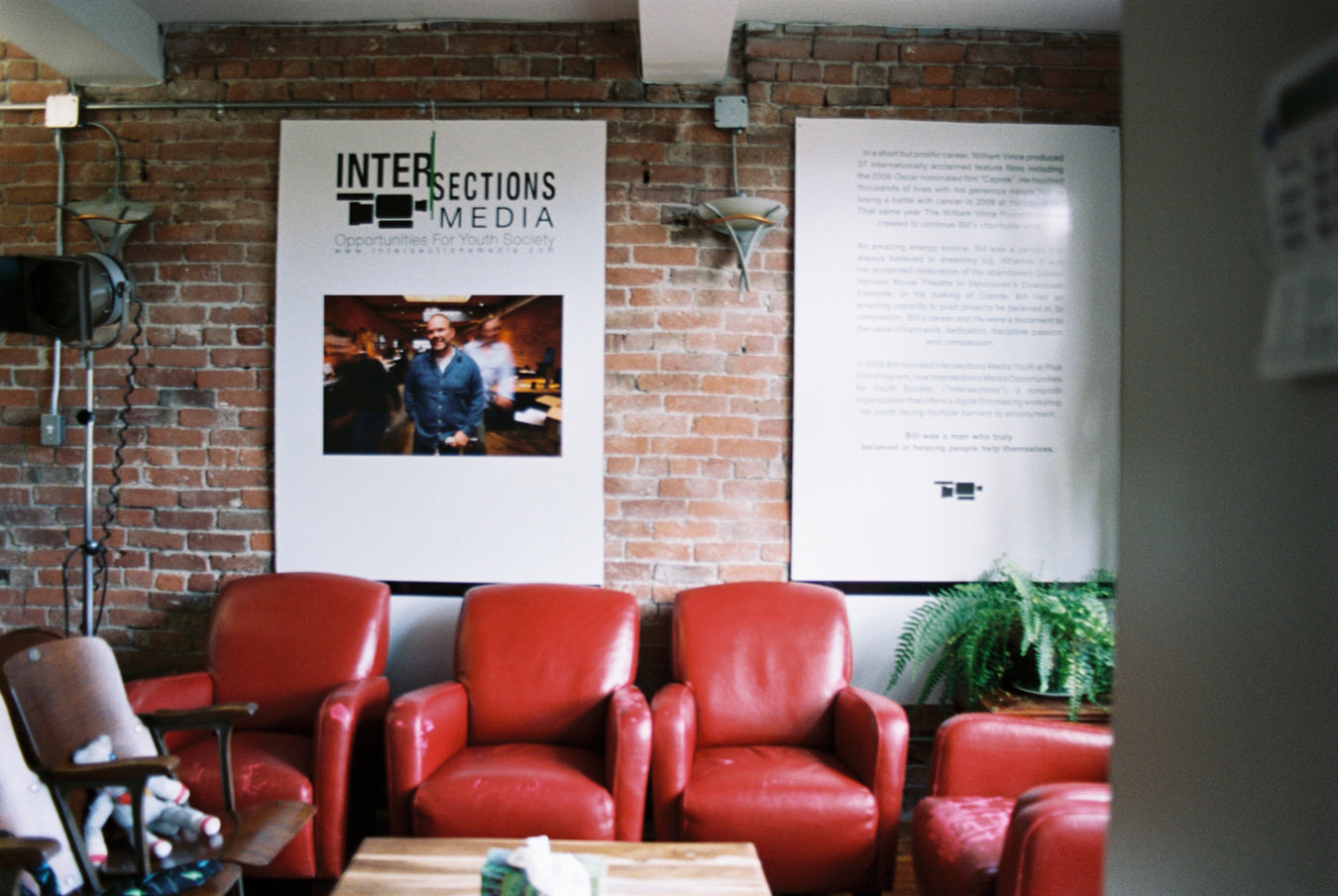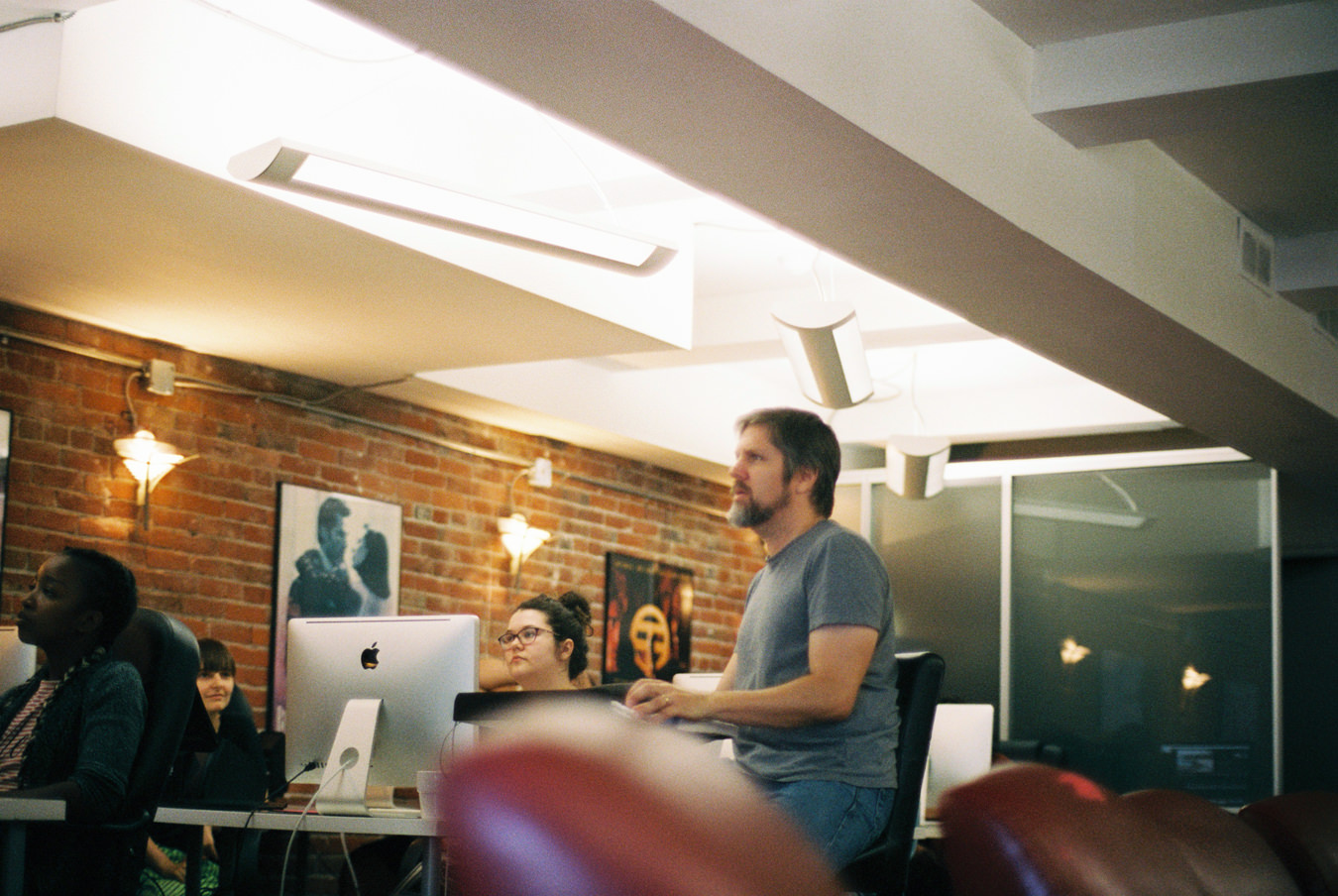Almost one-fifth of Canadian youth personally experience mental health issues, and only 31 per cent of those receive the treatment or support they need. It’s an unfortunate reality that drove Oscar-nominated Vancouver producer William Vince—known for his work on Capote with Philip Seymour Hoffman, as well as 36 other internationally acclaimed feature films—to pair philanthropy with his productions.
Intersections is a non-profit organization founded by Vince that aids young people who have tough backgrounds and mental health issues by arming them with the skills to take on a career, be heard, and help themselves.
The first iteration of Intersections started in 2004 at the Golden Harvest movie theatre (now the Imperial) in the Downtown Eastside, where Vince’s production company Infinity Features was located. Getting to know the people of the area and being affected by its marginalized youth, he wanted to help break the cycle of illness, homelessness, and addiction that can come with mental health issues—in young people in particular.
Vince saw a problem, and took action to tackle it in his own creative way. He started by taking five at-risk young people into his production company for six months to a year and introducing them to what filmmaking is all about. They worked on his different productions, developed their work ethic, and had a routine that helped guide their days.
By 2006, the program had evolved into the Intersections Media Youth at Risk Film Program, with Vince as well as other experienced filmmakers advocating for and working directly with young people. Making short films in a Hollywood-level production company was not only exciting and eye-opening, but involved learning practical and creative skills. The youth worked as part of team, accomplishing goals and building confidence, which in turn led to opportunities to move forward.
“They’re creating something that’s their own. For some, it’s the first time they’ve created anything.”
Vince touched many people’s lives with his generosity and spirit before he lost his battle with cancer in 2008 at the age of 44, while working on The Imaginarium of Doctor Parnassus. With his passing, his sister Lyn Vince stepped in and created the William Vince Foundation, dedicated to continuing his charitable work assisting youth in need. In 2009, his organization was renamed the Intersections Media Opportunities for Youth Society.
Lyn harnessed his passion and spearheaded Intersections (one facet of the foundation), keeping it as an inspiring initiative for at-risk youth to integrate into the workforce—a lasting legacy of her brother’s work. Lyn’s efforts turned Intersections into the structured altruistic organization it is today (it received charitable status in 2014), with the program growing from five participants to 64 a year.
The program consists of life skills lessons based on experiential learning and project management. There are four projects to complete over four weeks, with art, filmmaking, and photography as the foundations. “The process of being creative builds confidence,” says Chris Hindle, Intersections’s director of operations. “They’re creating something that’s their own. For some, it’s the first time they’ve created anything. It’s very therapeutic to be able to tell your own stories via film, to have something you can be proud of.”
The group is diverse, with depression and anxiety as common issues—several of which stem from childhood trauma or health problems. Many have aged out of foster care and found themselves lost in the system with no support. Whatever the circumstances that may have led them towards illness, addiction, or a need for help, Intersections provides a safe space to grow, learn practical skills, and gain confidence through creative means. “We find it’s our responsibility to help give them an opportunity, with no judgement on their past,” Hindle explains. This is core to Intersections, and has been its foundation since the beginning, along with Vince’s belief in the power of helping others help themselves.
The kids are also paid to participate—helping teach financial responsibility—which is funded by Service Canada’s Skills Link, and is now a program of BladeRunners, a youth-centric project that places people in employment. Both partnerships, Hindle says, are crucial: “We wouldn’t be able to do what we do without them.”
The employability and life skills acquired during the workshops are transferable, no matter the industry or sector, and 85 per cent of Intersections participants find work or educational training after the program. It’s bigger than film. It’s bigger than learning to be creative. It’s about taking control of their lives.
Take a browse through our Impact section.
















